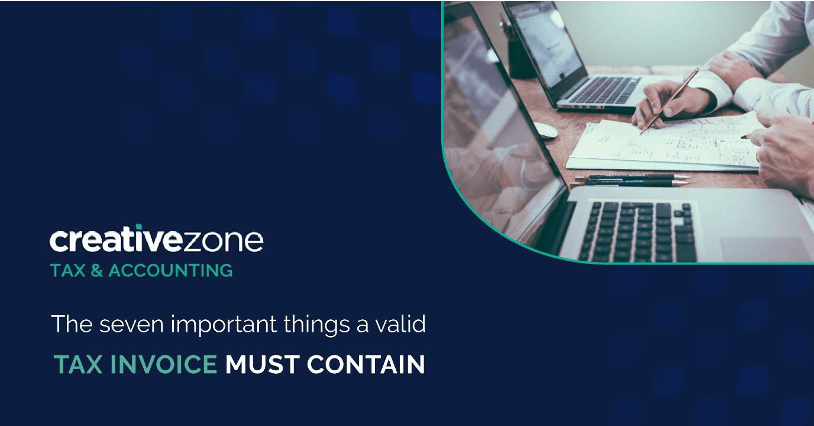What is a Tax Invoice
A tax invoice is a written or an electronic document which records the details of a standard-rated taxable supply. A VAT-registered person or business must issue an original tax invoice to the recipient of a standard-rated supply of goods or services or a deemed supply of goods or services.
When a tax invoice must be issued
Within 14 calendar days of the date of supply, a tax invoice must be issued. However, it is possible to issue a single tax invoice which covers multiple supplies made in the same calendar month to the same recipient.
Why obtain and keep tax invoices
For suppliers, the issuance of a valid tax invoice is important as it may dictate the time of supply, and therefore determine in which tax period the output tax should be accounted for.
For customers, on the other hand, receipt of a tax invoice ensures transparency regarding VAT amounts charged. This is especially important for VAT registered recipients as a tax invoice is needed as evidence to support the recovery of VAT incurred on purchases as input tax.

To be valid, a tax invoice issued by a taxable person must include all of the following information:
- The words ‘Tax invoice’ must be clearly displayed on the invoice.
- The name, address and Tax Registration Number of the supplier.
- The name, address and Tax Registration Number of the recipient (if registered).
- A sequential or unique number which identifies the tax invoice.
- The date of issue of the invoice (and the date of supply, if different to the invoice date). A description of the goods or services provided.
- For each good or service: the unit price, the quantity supplied, the applicable rate of tax and the amount payable expressed in AED.
- The amount of any discount (if any).
- The gross amount payable expressed in AED.
- Equivalent amount in AED if an invoice is issued in a foreign currency
- A statement that the Recipient is required to account for Tax, and a reference to the relevant provision of the Decree-Law in case the customer is required to account for VAT

Foreign Currency
If an invoice is issued in non-AED currency – the tax amount in AED and exchange rate must be stated. The Central Bank of UAE issues exchange rates, including historic rates and these, must be used to calculate the equivalent AED amount.
What is a tax credit note
A tax credit note is a written or electronic document which records the details of any reduction in the value, and the corresponding output tax amount charged, on a supply that has already been made, like a refund.
A VAT-registered supplier must issue an original tax credit note to the original recipient of the supply while reducing the amount of output tax that was originally charged on the supply.
Tax Credit Note-Requirements
A taxable person must include all of the following information in the tax credit note, in order for it to be valid.
The words “Tax Credit Note” must be clearly displayed on the credit note.
The name, address and Tax Registration Number of the supplier.
The name, address and Tax Registration Number of the recipient (if registered).
The date of issue of the Tax Credit note.
The value of the supply shown on the original tax invoice, the correct value of the supply, the difference between those amounts, and the tax charged in AED that relates to that difference.
A brief explanation of the circumstances giving rise to the issuance of the tax credit note. Sufficient information which can be used to identify the supply to which the tax credit note relates.
Record-keeping requirements
A taxable person must retain the following records for at least 5 years from the end of the tax period to which they relate:
Invoices and Credit Notes
All tax invoices and alternative documents related to receiving goods or services and payments for them e.g. receipts and relevant accounting books
All received tax credit notes and alternative documents received
All tax invoices and alternative documents issued
All documents credit notes issued and alternative
Records
Records of all supplies and imports of goods and services
Records of all exported goods and services
Records of goods and services that have been disposed of or used for matters not related to business, showing taxes paid
Records of goods and services purchased for which the input tax was not deducted.
Records of adjustments or corrections made to accounts or to tax invoices

Get in touch with our Experts if you would like to know more



